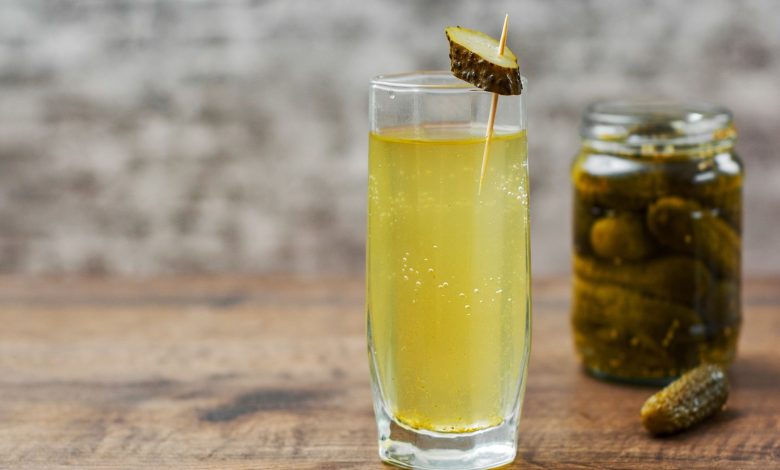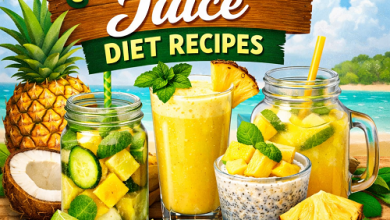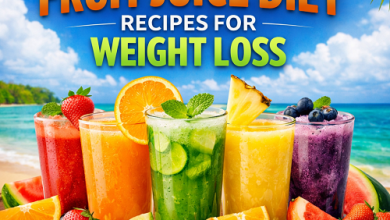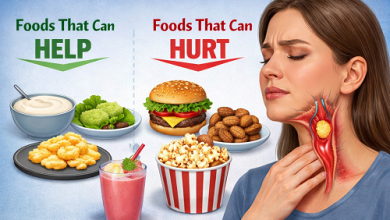Does Drinking Pickle Juice Actually Help with Muscle Cramps?

It’s the middle of the night, and suddenly you wake up with a sharp, stabbing pain in your calf. The muscle tightens like a knot, leaving you helpless and desperate for relief. Or maybe you’ve just finished a long workout, and as you stretch, a spasm grips your leg. Muscle cramps—those sudden, painful contractions—can strike anyone at any time.
For decades, athletes, trainers, and even grandparents have suggested a strange remedy: drinking pickle juice. It may sound odd, even unappealing, but many swear by it. They claim that a few sips of this salty, tangy liquid can stop cramps in their tracks. But is there any truth to this? Or is it just another health myth passed down through generations?
Let’s explore the science, the emotions, and the real-life stories behind this fascinating question: Does drinking pickle juice actually help with muscle cramps?
Pickle Juice
Pickle juice is the briny liquid that vegetables—most commonly cucumbers—are soaked in during the pickling process. This liquid usually contains water, vinegar, salt, and spices, though recipes may vary by culture and preference. The purpose of the brine is twofold:
- Preservation – Vinegar and salt act as natural preservatives, preventing harmful bacteria from growing.
- Flavoring – Herbs and spices in the brine infuse the vegetables with their characteristic tangy, savory taste.
Over time, as cucumbers sit in the brine, they absorb its flavor and transform into crunchy pickles. But the juice itself retains much of the vinegar, salt, and spices, making it a zesty and functional liquid in its own right.
What’s Actually in Pickle Juice?
Pickle juice isn’t just salty water. Its unique composition may explain why it works for muscle cramps.
- Sodium: Restores lost electrolytes.
- Potassium: Supports muscle function.
- Vinegar: May trigger nerve reflexes.
- Magnesium: Helps prevent muscle spasms.
- Water: Provides hydration.
This powerful combination of electrolytes and acidity might explain why so many people experience near-instant relief.
Health Benefits of Pickle Juice
In recent years, pickle juice has been studied for its surprising health benefits. Below are some of the most well-documented and widely believed advantages:
1. Relieves Muscle Cramps
Athletes often use pickle juice to quickly ease muscle cramps. Research suggests that its high sodium and vinegar content helps reduce cramping by restoring electrolyte balance and stimulating reflexes that relax the muscles.
2. Supports Hydration
After intense exercise, sweating can cause a loss of sodium and other electrolytes. Drinking pickle juice replenishes these minerals, helping the body maintain hydration and prevent fatigue.
3. Aids Digestion
The vinegar in pickle juice contains acetic acid, which can promote the growth of good gut bacteria and improve digestion. For some people, it may also help reduce bloating.
4. Helps Regulate Blood Sugar
Some studies suggest that vinegar, including that in pickle juice, may help lower blood sugar spikes after meals by slowing carbohydrate digestion. This could be beneficial for people with insulin resistance.
5. Soothes Hangovers
Because alcohol dehydrates the body and depletes electrolytes, pickle juice is sometimes used as a hangover remedy. Its high sodium content can help restore balance and reduce headache or fatigue.
6. Boosts Immune Health
Spices and herbs in pickle juice, such as garlic and dill, are rich in antioxidants and antimicrobial compounds that may support immune function.
7. Weight Management Support
Some people use pickle juice as part of a weight-loss regimen. Vinegar has been linked to increased satiety, which may reduce overeating.
Understanding Muscle Cramps
Before diving into pickle juice, it’s important to understand what muscle cramps are and why they happen.
What is a Muscle Cramp?
A muscle cramp is an involuntary, painful contraction of a muscle or group of muscles. These spasms often last from a few seconds to several minutes and can be severe enough to stop an athlete mid-competition or wake a person from deep sleep.
Common Causes of Muscle Cramps
Muscle cramps can be caused by several factors, including:
- Dehydration – Loss of fluids due to sweating, illness, or inadequate water intake.
- Electrolyte Imbalance – Low levels of sodium, potassium, magnesium, or calcium.
- Overexertion – Strenuous physical activity, especially in hot conditions.
- Poor Circulation – Restricted blood flow to muscles.
- Medical Conditions – Such as nerve compression, kidney disease, or diabetes.
- Medications – Diuretics and statins are known to cause cramps in some individuals.
Traditional Remedies
The standard advice for muscle cramps includes stretching, hydration, electrolyte drinks, rest, and sometimes magnesium supplements. However, pickle juice has emerged as a quick and unconventional option, especially popular among athletes.
The Science Behind Pickle Juice and Muscle Cramps
Early Observations
Athletes were some of the first to report that pickle juice provided almost immediate relief from muscle cramps. Unlike water or sports drinks, which take longer to be absorbed, pickle juice seemed to work within minutes—too quickly to be explained by hydration alone.
Research Findings
Several studies have examined pickle juice and muscle cramps:
- Miller et al. (2010) – In a controlled study, pickle juice relieved electrically induced muscle cramps in men 40% faster than drinking water. Interestingly, the relief happened before the body could absorb and process the sodium, suggesting a neurological effect rather than simple hydration.
- Neural Reflex Theory – Scientists believe that the acetic acid (from vinegar) and salty flavor of pickle juice trigger a reflex in the mouth and throat. This sends signals through nerves that help the muscles relax, essentially “resetting” the cramp.
- Electrolyte Support – While not the primary mechanism, pickle juice also contains sodium and potassium, which help prevent cramps related to electrolyte loss during heavy sweating.
Neural Reflex Theory – Why Pickle Juice Stops Cramps So Quickly
Scientists have introduced what’s known as the Neural Reflex Theory. The idea is that the acetic acid (vinegar) and salty taste in pickle juice trigger nerve reflexes in the mouth and throat. These reflexes send signals to the nervous system, which then “resets” the cramping muscles and helps them relax almost instantly.
It’s the same reason many natural remedies, like herbal teas or supplements such as HEMP Capsule For Calm, Sleep, Stress, Anxiety, Pain, Muscle, Relax (30 to 120 Capsules), can work on a neurological level—by influencing the body’s natural reflexes and calming pathways.
Why It Works So Fast
The fact that pickle juice relieves cramps within minutes suggests that it acts through the nervous system rather than replenishing electrolytes. The strong taste seems to stimulate receptors in the mouth, which then send signals to the spinal cord and override the misfiring nerves causing the muscle cramp.
How to Use Pickle Juice for Muscle Cramps
If you’re interested in trying pickle juice as a remedy, here’s how to use it effectively:
For Immediate Relief
- Dosage: 1–3 ounces (30–90 ml) of pickle juice.
- Method: Drink it as soon as you feel a cramp starting. Relief often occurs within 1–2 minutes.
For Prevention
Some athletes drink a small amount of pickle juice before intense exercise in hot conditions to help prevent cramps.
Practical Tips
- Use store-bought or homemade pickle juice (without artificial colors or additives if possible).
- Keep a small bottle handy during sports activities.
- Avoid drinking too much, as excess sodium may cause bloating or high blood pressure.
Benefits Beyond Muscle Cramp Relief
Pickle juice is not just for cramps—it may offer additional health benefits:
- Hydration Support – Its high sodium content helps retain fluids, preventing dehydration.
- Electrolyte Replacement – Useful for athletes or people who sweat heavily.
- Blood Sugar Regulation – Vinegar in pickle juice may help improve insulin sensitivity and stabilize blood sugar levels.
- Digestive Health – Fermented pickle juice provides probiotics for gut health.
- Antioxidant Support – Spices like dill, garlic, and mustard seeds contain antioxidants that fight inflammation.
Conclusion
Pickle juice may sound like an unusual remedy for muscle cramps, but growing evidence and personal testimonials suggest that it works—and works fast. Its effectiveness lies not just in electrolytes but in its ability to trigger nerve reflexes that stop cramps almost instantly.
For athletes, laborers, or anyone prone to cramps, a small dose of pickle juice can be a safe, inexpensive, and natural solution. However, like any remedy, it should be used in moderation, especially for individuals with sodium-sensitive health conditions.
So next time you feel a muscle cramp coming on, instead of reaching for a banana or sports drink, consider sipping a shot of pickle juice—it might just be the quick fix you need.




